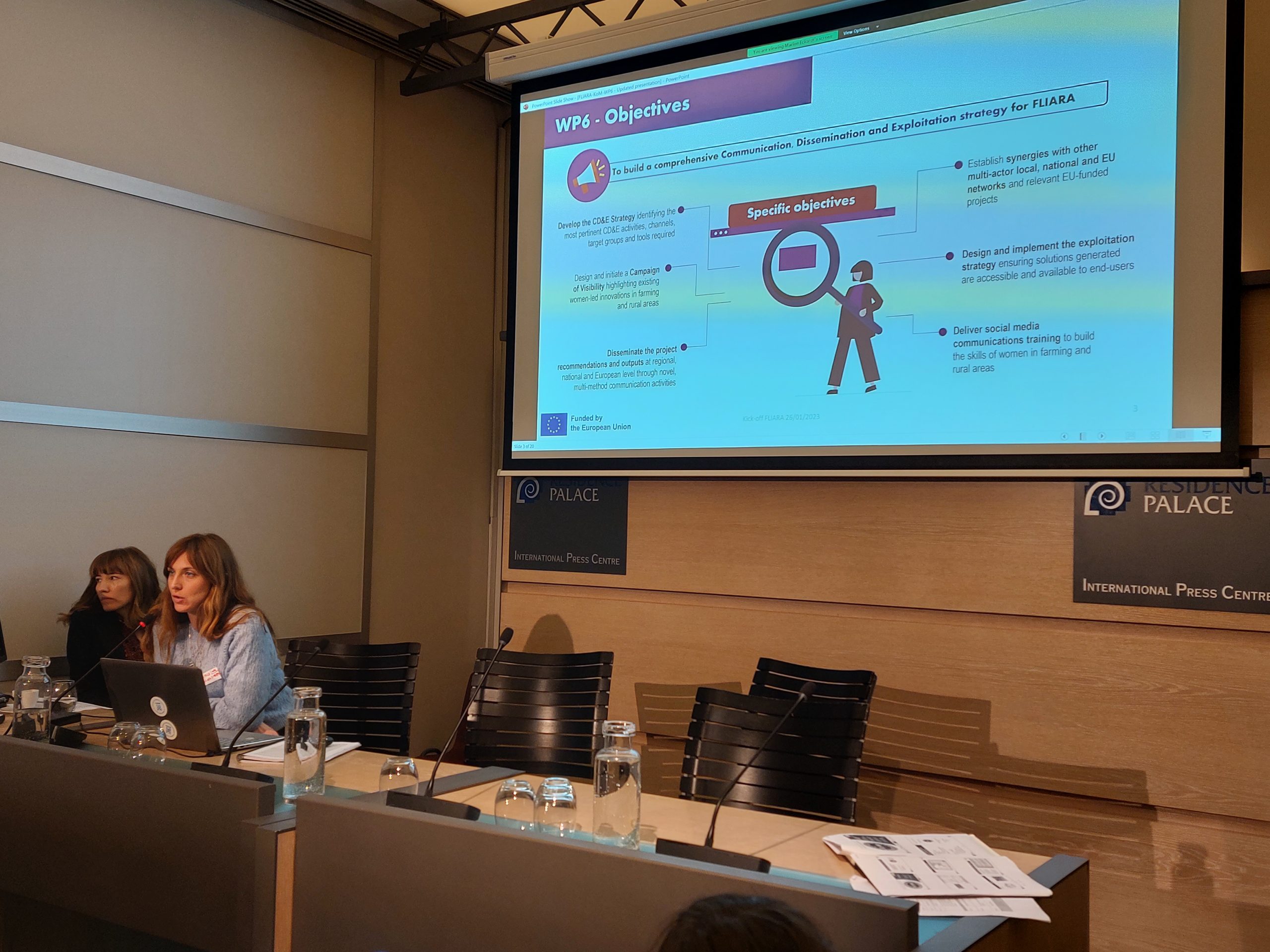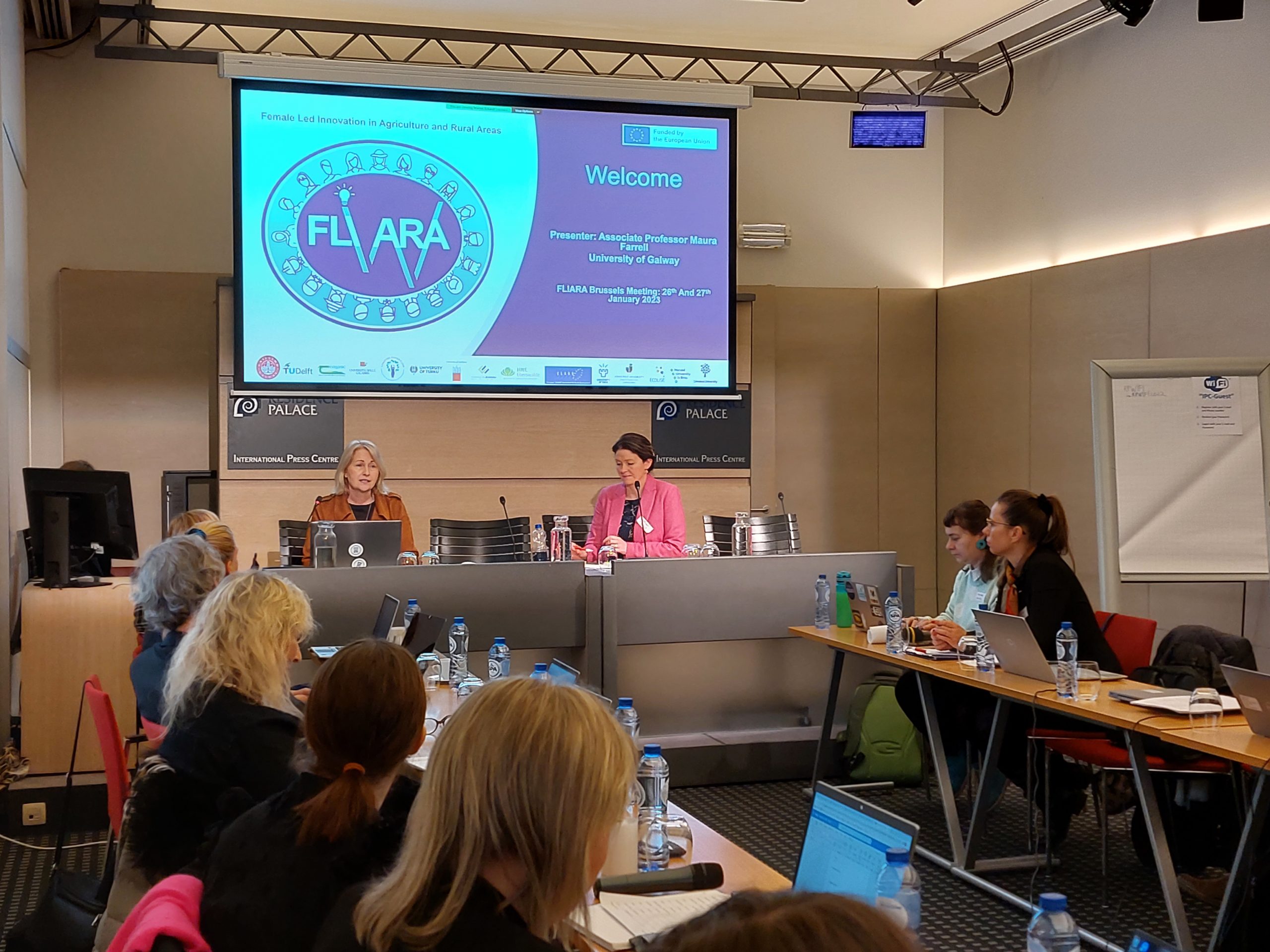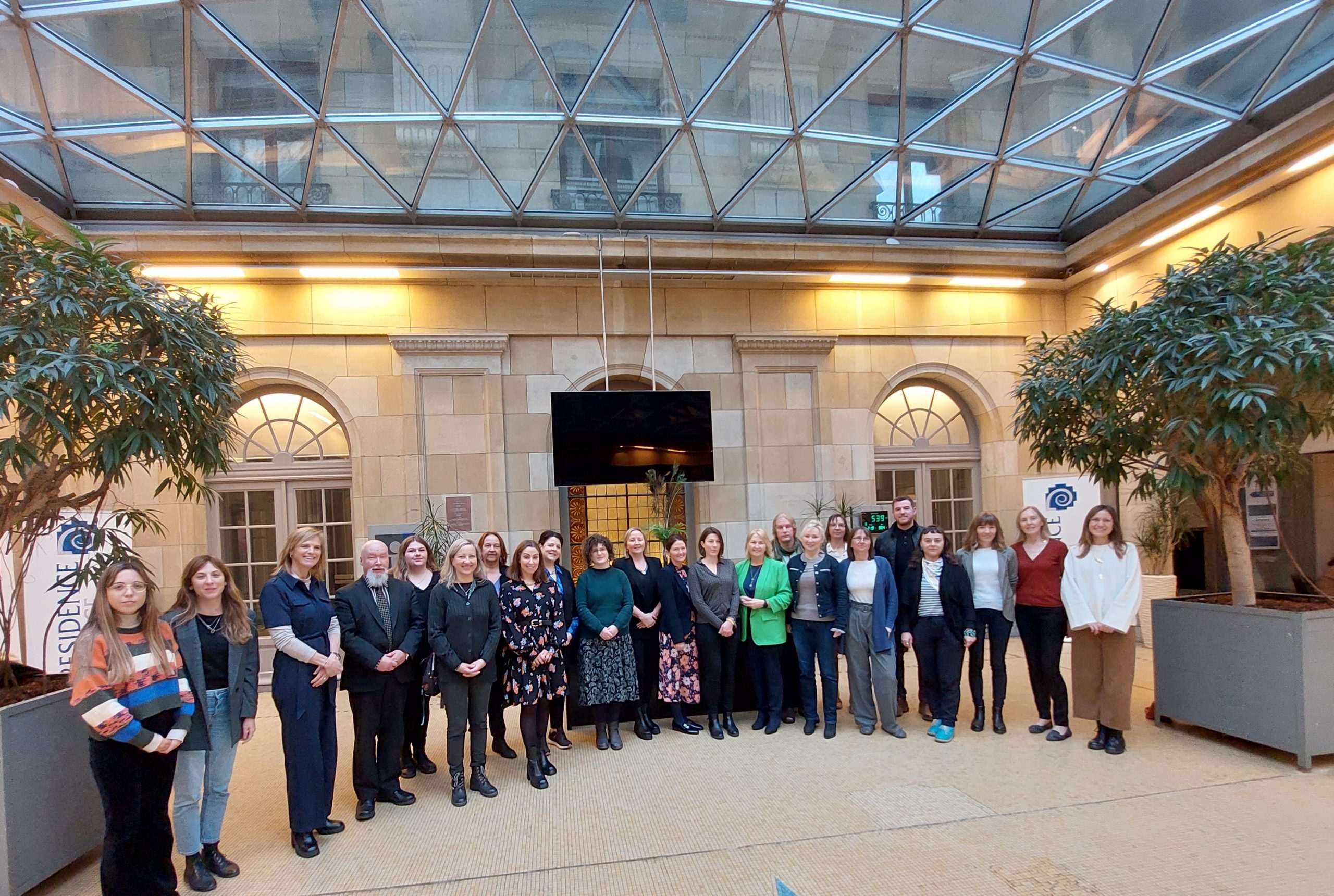The European ‘Female-led innovation in Agriculture and Rural Areas’ (FLIARA) project celebrated its official kick-off meeting on 26th and 27th January 2023 in Brussels, bringing together, for the first time, project partners, Advisory Board members, and EU officers.
Funded by the European Commission’s Horizon Europe programme (Grant Agreement No 101084234), the FLIARA project involves fifteen public and private organisations from ten different countries across Europe. The project is coordinated by the University of Galway, Ireland and will last three years. In Spain, Consulta Europa will lead the dissemination and communication process of the project along with other member countries of the consortium aimed at research and evaluation of innovative practices led by women and which will make visible their role as drivers.

FLIARA’s main objective is to create a European-wide ecosystem, which supports women-led innovative practices in farming and rural areas. FLIARA proposes a unique and innovative approach to improve women’s recognition in rural areas, which is a crucial aspect in bringing forward a more sustainable future for rural areas, as well as developing more effective supporting policy and governance frameworks. Building on a thematic case study approach, project partners will investigate women-led innovations in rural areas of the four EU macro-regions – Atlantic, Central & Eastern, Nordic Baltic, and Mediterranean. Upon the case studies’ selection and analysis, FLIARA will create and grow a Community of Practice Network to establish a learning partnership amongst all key stakeholders engaged in rural and farming innovation. It will also launch a Campaign of Visibility to raise awareness of women roles in farming and rural areas.
The FLIARA kick off meeting was opened by the Project Coordinator – Associate Professor, Maura Farrell of the University of Galway. In her introductory speech, Prof. Farrell highlighted that “we face many challenges, and many issues go through gender issues. Transdisciplinary innovation, improving women recognition, is a crucial aspect to bring forward a more sustainable future for rural areas”. FLIARA vision will be, therefore, to bring women as innovation actors in the spotlight.

The FLIARA kick off meeting brought everybody to the same level of understanding of the project’s structure, interconnections and next steps. It was an occasion to exchange views and expectations about how each task would be carried out and to pave the way for all partner organisations to have a shared understanding of how the project activities will need to be executed.
To conclude, the FLIARA project will aim to challenge the gender norms, relations and stereotypes that fail to recognise the contribution that women are currently making and can make into the future in leading rural and agricultural innovation in the European Union. The project is expected to deliver changes in societal practices and in the behaviour of individuals, communities, public and private organisations, contributing to achieving the European Gender Equality Strategy and the Sustainable Development Goal 5 on gender equality.

